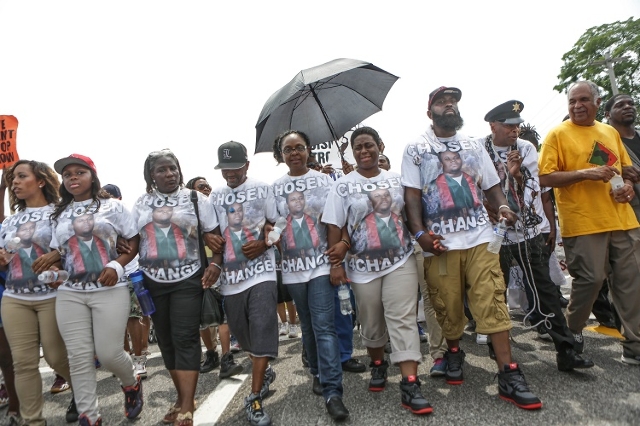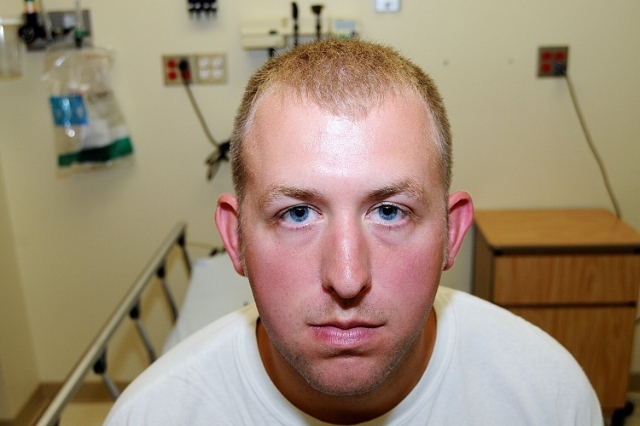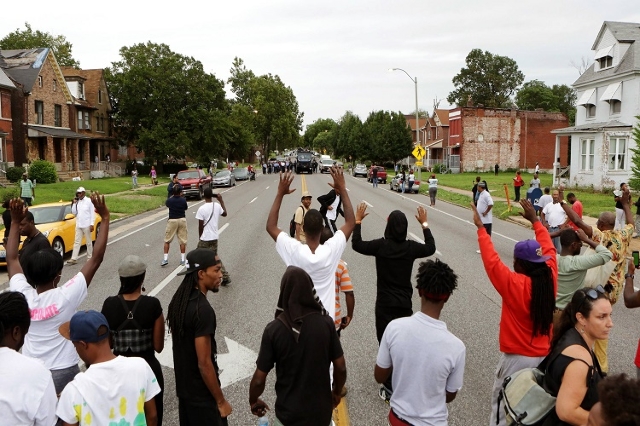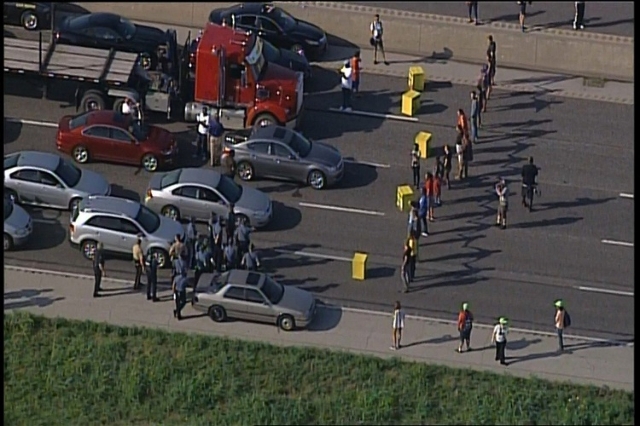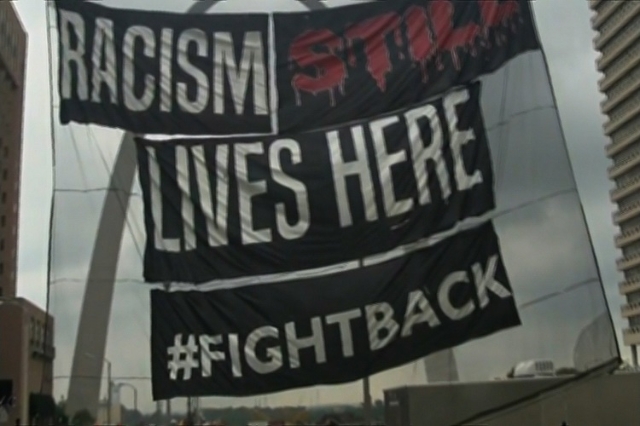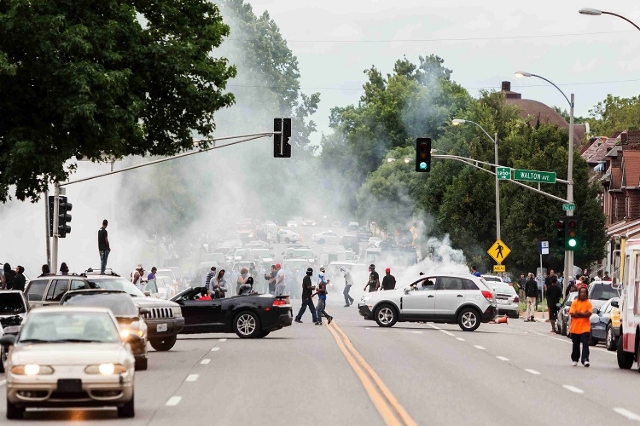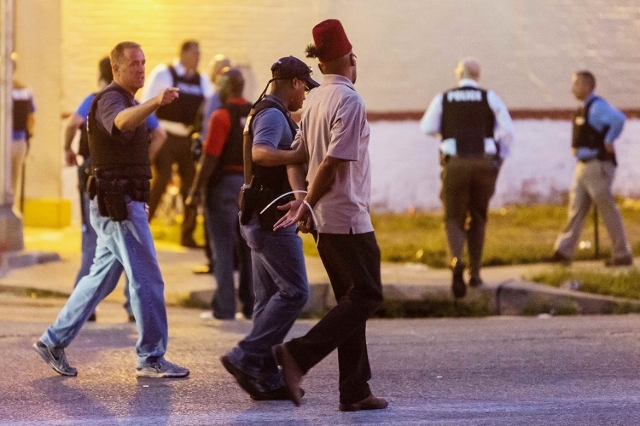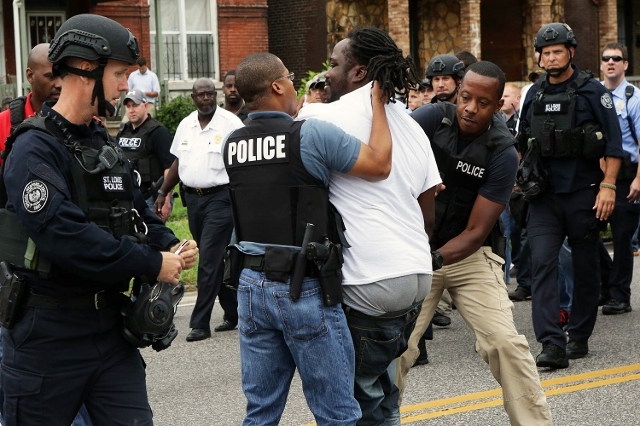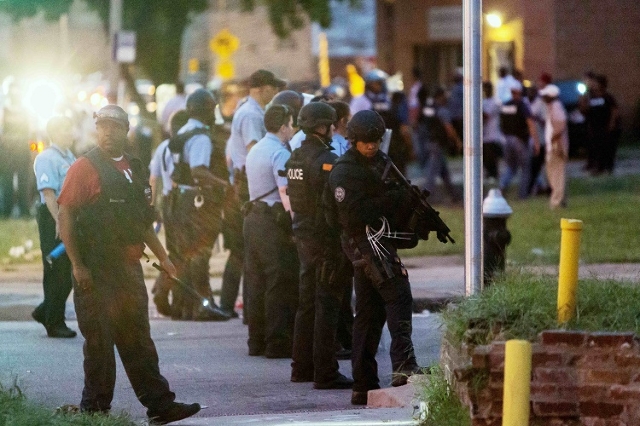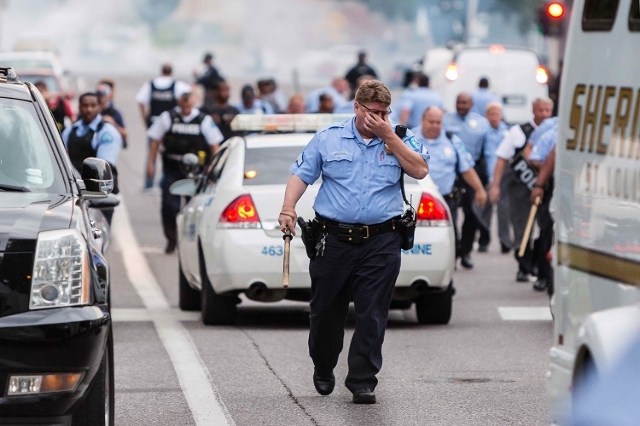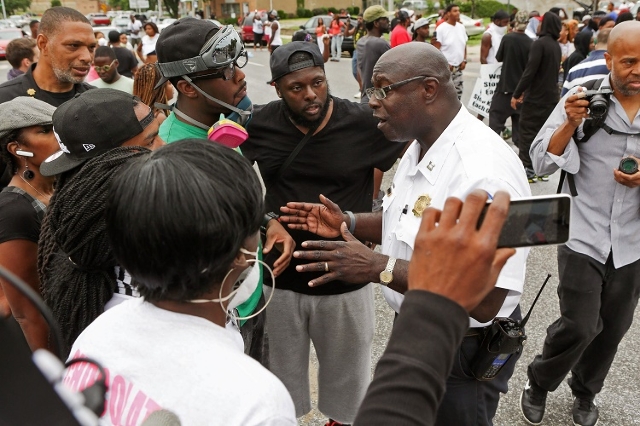Ferguson Commission report says racial divide affects many issues in region
Widespread racial inequities in the St. Louis area require sweeping changes in policing as well as in courts, the education system and other areas, according to a report issued Monday by a commission set up by Missouri's governor.
The Ferguson Commission report said that the police shooting of unarmed black teenager Michael Brown in Ferguson in August 2014 and the mass demonstrations that followed represent a "collective awakening" to a number of issues that have previously been invisible to many.
"We believe that if we attempt to skirt the difficult truths, if we try to avoid talking about race, if we stop talking about Ferguson, as many in the region would like us to, then we cannot move forward," the report said.
The 16-member Ferguson Commission was formed by Missouri Gov. Jay Nixon in November as a means for exploring and addressing issues raised by protesters and others in the St. Louis region. Its members include clergy, protest leaders, business leaders and law enforcement representatives.
The commission's report said the racial divide through the St. Louis region is deep and cuts across access to healthcare, housing and high-quality education, and fosters injustice in the courts.
It followed a report by the U.S. Department of Justice and other analyses that have found disparate treatment of blacks by police and municipal courts in the area, including in Ferguson.
The commission made 189 policy recommendations. It also said a racial equity framework should be applied to all regional policies and programs to eliminate racial disparities.
Governor Nixon said the commission's work would help lead the state, and the country, to a "brighter future of justice and opportunity for all."
"Through this process, this commission has channeled the pain and energy of protest and set us on a clearly marked path toward progress," the governor said in a statement.
The commission said in one "call to action" that police departments and municipal courts across the St. Louis region should be consolidated.
It recommended as well that police departments across the state revise their policies to use only the minimal amount of force necessary, and should not use deadly force on fleeing suspects unless an officer or others are in serious danger.
It also recommended that law enforcement agencies statewide require law enforcement to identify themselves to individuals they stop; prohibit discriminatory profiling; improve police training in how to interact with civilians; and integrate civilian evaluations into departmental operations.
Police treatment of minorities drew nationwide attention after a series of high-profile incidents in which African-Americans have been injured or killed during questionable encounters with police.
The Ferguson Commission report echoed other reports that have found that race has a role in the way police treat civilians. The commission report said that data shows that last year blacks were 75 percent more likely to be stopped by police for traffic violations than whites.
Among other recommendations: improved public transportation; more quality, affordable housing; expanded Medicaid eligibility; expansion of nutrition assistance programs for poor people; a higher minimum wage; improved education; and the establishment of school-based health centers.
The report, [is] titled "Forward Through Ferguson: A Path Toward Racial Equity."



